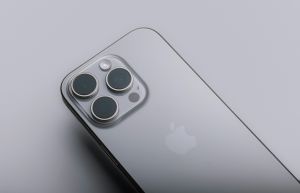Chloroquine, an anti-malaria drug that President Donald Trump fast-tracked for clinical testing this week in an effort to combat coronavirus, can be deadly for kids.
Lana and Steve Ervin of Tulsa lost 2-year-old Ashley after she accidentally ingested an alleged single chloroquine pill 37 years ago warned the public to be aware of the drug's potentially lethal side effects.
The couple thought their home was child-proof, but chloroquine was tucked away behind a makeup divider in a bathroom drawer. They had no idea that it was hidden in the house.
Steve in his missions to foreign countries had taken chloroquine to ward off the tropical disease.
Lana said she is not trying to discourage people from taking the drug if researchers prove it can cure COVID-19.
"Hopefully it really serves the COVID-19 purpose," according to Lana. "But parents, grandparents, everybody needs to know. Man, it is dangerous."
When they sat down to eat pizza which was apparently Ashley's favorite, the child's eyes began to droop. The parents rushed Ashley to a nearby hospital and found out that the child had not taken aspirin in relief. They did not know the anti-malaria drug was lethal.
"We really thought it would be pump the stomach and be home tomorrow," Lana remarked. The family spent the following five days in the pediatric intensive care unit in a tug of war with death.
Malaria and COVID-19 do not have much in common but according to early research, an old malaria drug called chloroquine might also be effective to cure the new coronavirus.
The decades-old malaria drug could potentially treat the novel coronavirus. Elon Musk agreed, recently tweeting that it "might be worth considering chloroquine."
While President Trump held up two drugs as possible treatments for COVID-19, he confirmed that chloroquine was "very powerful" and has shown "very, very encouraging early results."
However, the Food and Drug Administration has not approved the medicine for use against the coronavirus.
The FDA Commissioner reiterated against giving people "false hope." According to experts, in times of crisis, it is tempting to want to cut corners and move as rapidly as possible, but science moves at the pace it underscores patient safety.
The drug touted by Trump as effective comes with serious warnings from China and can potentially kill in dosages as little as two grams.
China initially recommended chloroquine to treat infected patients in February after seeing encouraging results in clinical trials, but it then alarmed health officials and doctors about the drug's lethal side effects and rolled back its usage.
Although rare, chloroquine poisoning in children is extremely dangerous because of the thin line between therapeutic and toxic doses.
Managing director of the Oklahoma Center for Poison and Drug Information, Scott Schaeffer, said that the related drug, hydroxychloroquine is also under review as a potential coronavirus treatment. The related drug tends to be more tolerable than chloroquine, but caution should be taken with both.
Chloroquine, or hydroxychloroquine, has been used as a prevention and cure for malaria since 1944.
Related Article : Coronavirus Cure: Cat Medicine Could Possibly Beat COVID-19
© 2026 HNGN, All rights reserved. Do not reproduce without permission.








